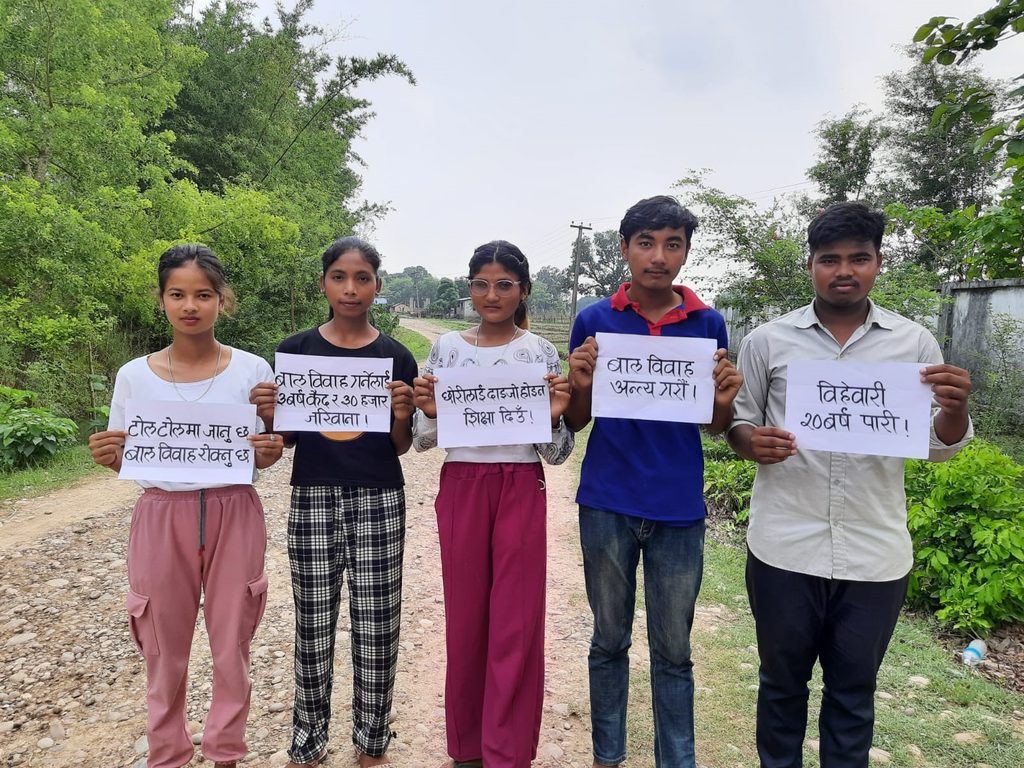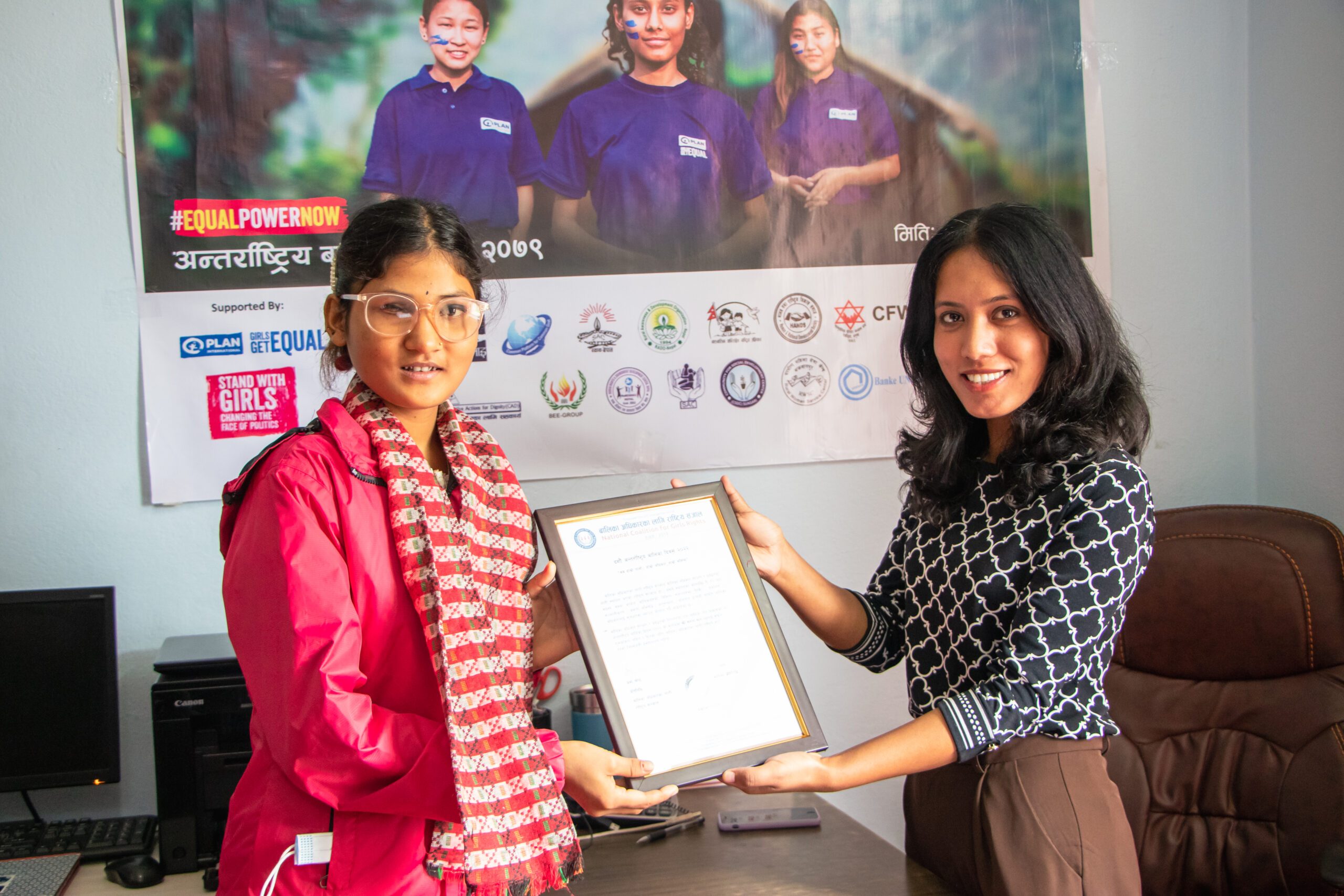Disability – not a hindrance to leadership
Meet Saruna, a remarkable 16-year-old girl who has defied societal stereotypes and prejudice, becoming a symbol of empowerment for girls with disabilities as she takes up the position of coordinator of the National Coalition for Girls Rights.

Saruna’s story is proof of the strength of the human spirit and the power of determination. In a world where girls and young women with disabilities often face discrimination and stigma, Saruna’s journey stands as a shining example of resilience and leadership.
Saruna was born with a disability that affected her vision, allowing her to see only from one eye. Despite her physical condition, she refused to let it define her.
“I do not feel that being able to see only from one eye is a problem, but sometimes my friends and their parents did not want to talk to me. They think I may have some disease and it may affect them,” says Saruna.
“They think I may have some disease and it may affect them.”
Saruna
Breaking barriers through education
Saruna’s determination led her to complete her schooling, but her dreams of pursuing a career in hotel management faced resistance, even from her parents.
“I wanted to study hotel management and travel abroad,” Saruna shares sadly. “But my father denied it, saying that because of my disability, I wouldn’t be able to sustain a career in the hotel business. So, I enrolled in the management faculty.”
While Saruna was fortunate to have her family’s support to some extent, she was acutely aware of the greater struggles faced by other women with disabilities in her society.
“I belong to a community where child, early, and forced marriage is high,” she says. “I have seen disabled women being forced into marriage. In my community, it is believed that a disability can be cured if he/she is married at an early age. On the other hand, some disabled women are not married because of their disabilities.”
However, Saruna’s journey was not one of isolation. Thanks to her association with Plan International Nepal, her family received sensitisation on preventing child, early, and forced marriage. They actively participated in programmes aimed at raising awareness about CEFM.
A remarkable achievement
She joined the Champion of Change (CoC) programme and actively participated in the local adolescent girl club, where she co-led campaigns to end child, early, and forced marriage (CEFM) in her community. However, the journey was not without its challenges.
Saruna’s involvement with the CoC classes played a pivotal role in her empowerment. She developed self-confidence and a strong sense of self-worth.
“Because of the CoC classes, I have been able to gain my self-confidence,” she says. “I speak out for myself. Whenever people criticise me or my disability, I tell them that it is not a disease, and they should not consider disabled people different from others.”
Saruna’s remarkable journey took an extraordinary turn when she was nominated to participate in Girls Takeover to mark the International Day of the Girl Child in 2022.
“I was surprised when I received an invitation from Plan International Nepal to be part of the Girls Takeover event,” she says proudly. “I am glad to know I am the first disabled girl taking over the role of powerholder.”

Saruna assumed the role of the coordinator of the National Coalition for Girls Rights, a network dedicated to bringing practical changes to the lives of girl children and recognising their rights in Nepal.
“I made my parents proud,” she beams. “After the event, there was news coverage in national media. It gave me recognition in my community. Everyone appreciated my efforts to make a change and demand #EqualPowerNow for adolescent girls.”
Inspiring others
Saruna didn’t stop there. She shared her experiences and learning with the girls in her CoC classes, motivating them to follow in her footsteps.
Saruna shares, “I will mentor them for this year’s event so that girls from marginalised communities could represent in the national program and take over the role of powerholders demanding Girls Get Equal; Power, Freedom, and Representation.”
“I will mentor them for this year’s event so that girls from marginalised communities could represent in the national program and take over the role of powerholders demanding Girls Get Equal; Power, Freedom, and Representation.”
Saruna
Saruna’s story is a beacon of hope, proving that disability is not a hindrance but a source of power to make change. Her journey inspires us all to challenge stereotypes, support those facing discrimination, and work towards a more inclusive and equal world. Saruna’s leadership and determination show us that, indeed, disability is not a hindrance to leadership.
Categories: Campaigns